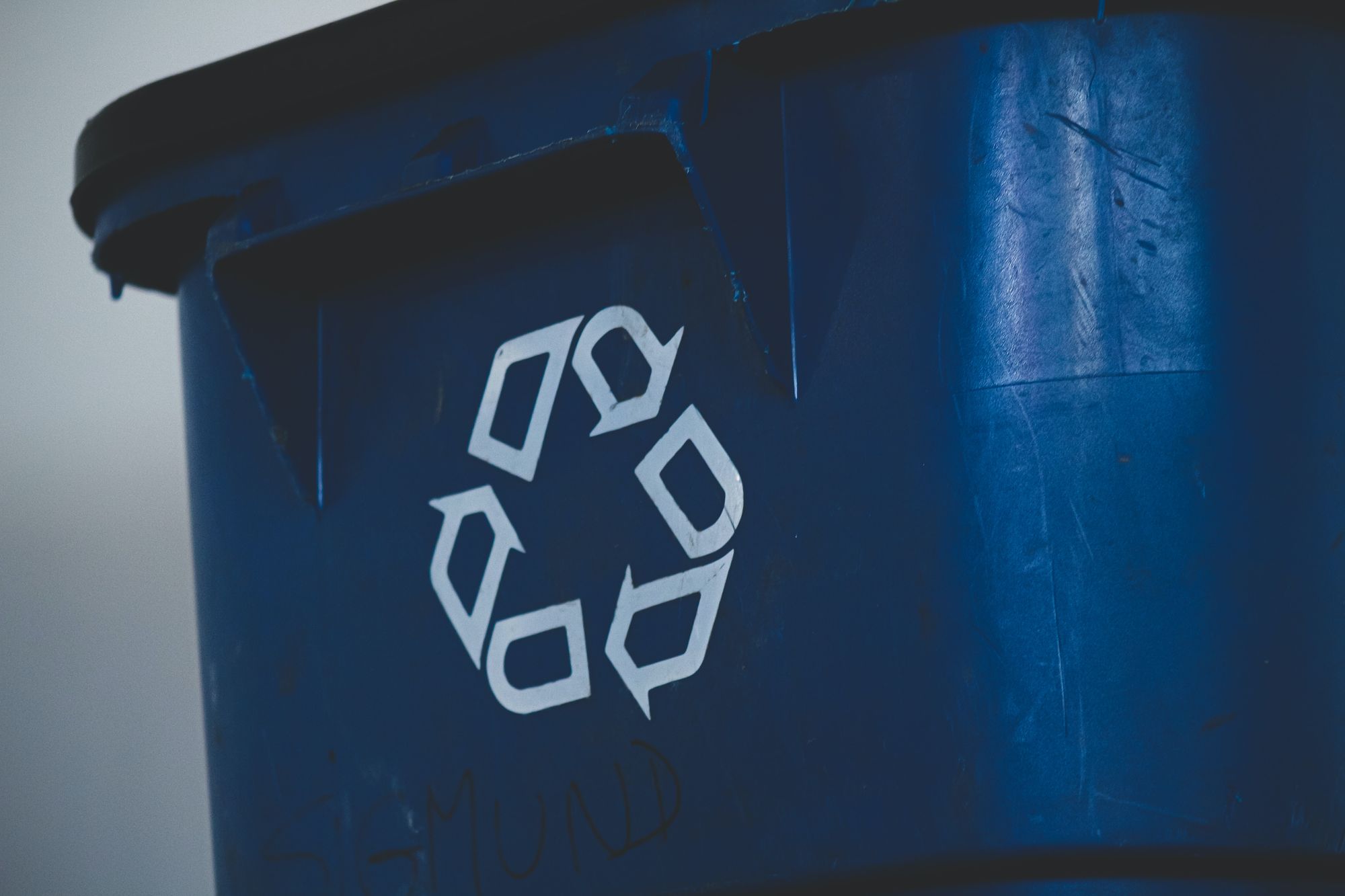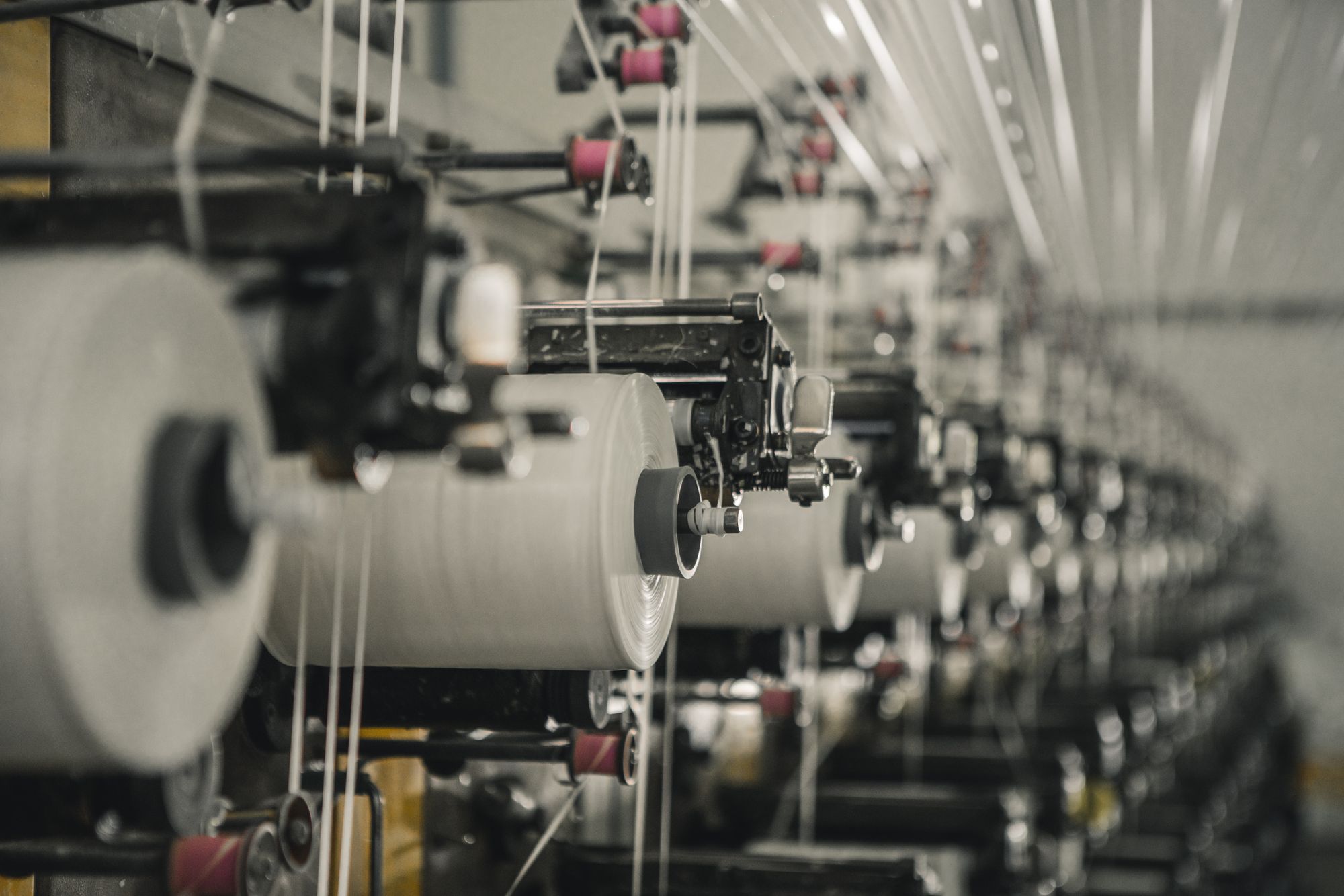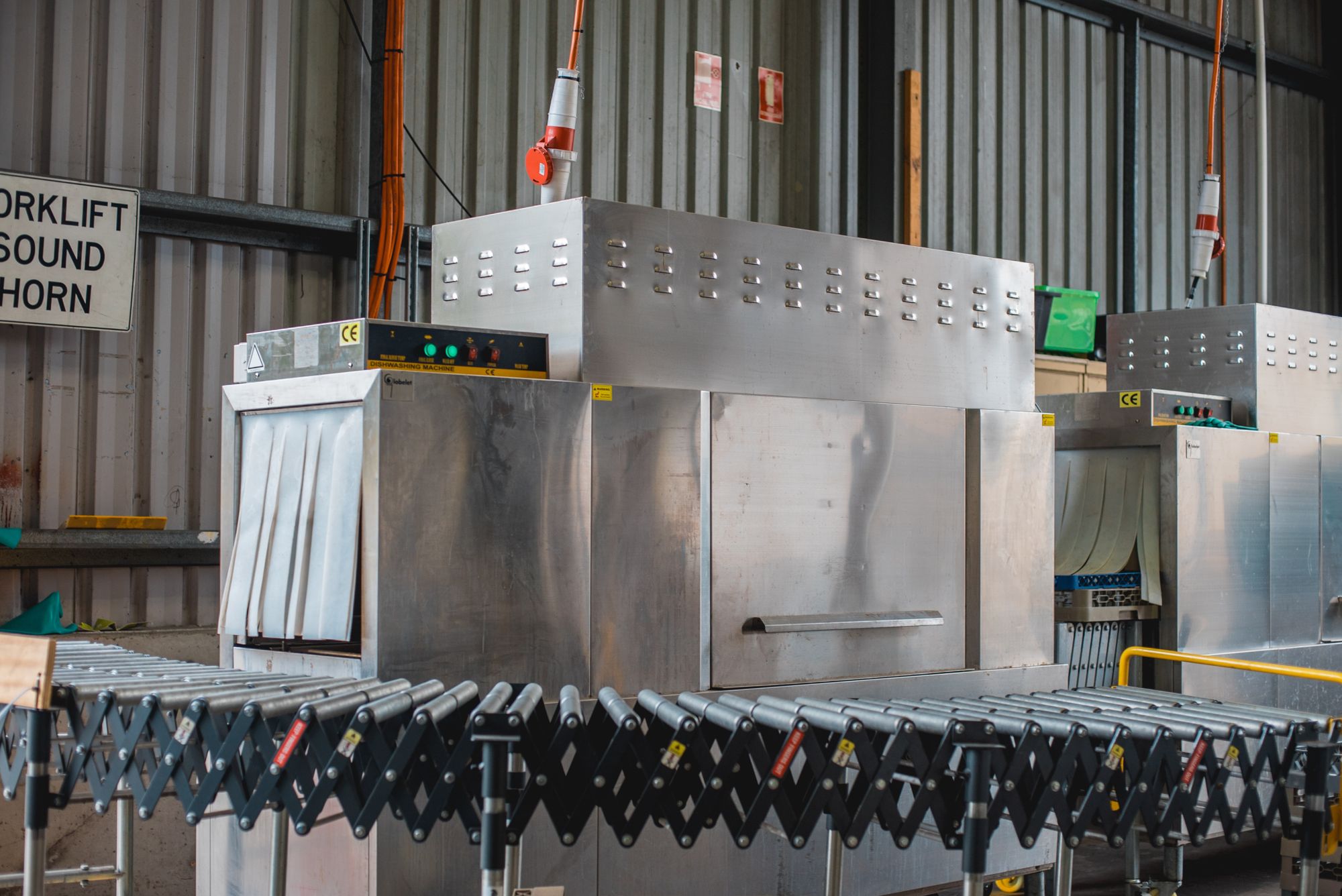In this day and age, plastic manufacturing is one of the most important industries in the world. It is a major driver of economic growth and has a vital role to play in the production of an array of products.

From medical supplies to automobile components, plastic manufacturing is essential to a wide range of industries. Despite its importance, plastic manufacturing is not without its risks.
The misuse of plastics can have serious environmental consequences, and it is essential that the industry is managed in a responsible and sustainable manner. Fortunately, there are a variety of guidelines, standards, and regulations that govern plastic manufacturing, ensuring that it is both safe and sustainable. In this blog, we will help you understand how to meet the latest guidelines on plastic production.
This article covers the following:
- What are the Latest Guidelines for Plastic Production?
- Understanding the Latest Guidelines
- Developing a Plan to Comply with Regulations
- Implementing New Technologies for Compliance
- Evaluating Different Types of Plastics
- Monitoring Quality Assurance Standards
- Staying Up to Date on Regulatory Changes
What are the latest guidelines for plastic production?
1. Ensuring that all plastic waste is properly disposed of, recycled, or reused.
2. Establishing an effective monitoring and reporting system for plastic waste management.
3. Encouraging the use of biodegradable plastics.
4. Implementing a labeling system for plastic products that clearly communicates the recyclability of the product.
5. Developing standards for the reuse and recycling of plastic products.
6. Promoting the use of renewable materials in plastic production.
7. Encouraging the use of recycled plastic materials in manufacturing processes.
8. Establishing a system of incentives for the development of new and innovative plastic manufacturing processes.
Understanding the Latest Guidelines for Plastic Manufacturing
As of late, plastic manufacturing has been a topic of much debate. With the increasing awareness of the damaging effects of plastic waste on the environment, governments have been introducing guidelines and regulations to reduce the amount of single-use plastic produced and discarded.
Additionally, many companies have been focusing on innovation to reduce their plastic footprint and develop more sustainable plastic manufacturing methods. So, what does this mean for plastic manufacturers? Here, we’ll take a look at the latest guidelines for plastic production and what manufacturers can do to be more sustainable.
Focus on Recyclability
The most important aspect of sustainable plastic manufacturing is making sure the plastic products are recyclable. This means that they can be broken down into their component parts and reused to create new materials. Manufacturers can reduce the amount of plastic waste that ends up in landfills or the ocean by ensuring that their products are recyclable.
Eliminate Unnecessary Packaging
Another important way to reduce plastic waste is to eliminate unnecessary packaging. Many times, manufacturers will use unnecessary packaging as a way to protect their products and make them more attractive to consumers.
However, this often results in excessive amounts of plastic being used and discarded. By eliminating or reducing the amount of packaging used, manufacturers can significantly reduce their plastic footprint. Invest in Innovation Innovation is key when it comes to reducing plastic waste.
Many innovative companies are developing new plastic materials that are more recyclable and degrade more quickly, such as biodegradable plastics. Additionally, some companies are even using plant-based plastic materials and other eco-friendly materials. By investing in innovation, manufacturers can reduce their plastic waste and create more sustainable products.
Adhere to Regulations
Finally, it’s important for manufacturers to stay up-to-date on the latest regulations for plastic production. Many governments have imposed regulations on plastic production, such as bans on single-use plastics or taxes on plastic packaging. By adhering to these regulations, manufacturers can ensure that they are producing sustainable materials and doing their part to reduce plastic waste.
By following these guidelines, plastic manufacturers can ensure that they are producing sustainable products and reducing their plastic footprint. By investing in innovation and adhering to regulations, manufacturers can make the world a better place and contribute to a more sustainable future.
How to Develop a Plan to Comply with Regulations?
Research the Various Regulations
The first step in developing a plan to comply with plastic manufacturing regulations is to research the regulations that apply to your specific area of expertise. Familiarize yourself with the different regulations, as well as any potential changes that might be coming down the line.
Create a Compliance Plan
Once you have gathered the necessary information, create a plan that outlines how your company intends to comply with the applicable regulations. Include the steps that need to be taken to ensure compliance, along with the timeline for achieving compliance.
Develop a System to Monitor Compliance
Develop a system to monitor compliance and track any changes that might be necessary to ensure that the regulations are being followed. This could include a tracking system for any changes or updates to the regulations and a system for reporting any violations or discrepancies.
Train Employees
Create a training program for your employees to ensure that they understand the regulations and are aware of the necessary steps to comply. Make sure that all employees receive the necessary training to understand and follow the regulations.
Implement the Plan
Once you have developed a plan and trained your employees, the next step is to implement the plan. Make sure that all necessary steps are taken to ensure compliance, and put in place any measures to monitor compliance and report any violations or discrepancies.
Review and Update
It is important to review and update your plan on a regular basis to ensure that you are in compliance with all applicable regulations. Make sure to review any changes to the regulations and incorporate those changes into your plan.
Implementing New Technologies for Compliance
In an increasingly competitive and globalized world, plastic manufacturing companies must stay up to date on the latest regulations and technologies. With new regulations and technologies constantly being developed, it is important to ensure that plastic manufacturing companies comply with regulations and keep up with the latest advancements in plastic manufacturing.
Implementing the right technologies can help plastic manufacturing companies stay compliant, increase efficiency, and remain competitive. One of the most effective ways to stay compliant with regulations and keep up with the latest innovations in plastic manufacturing is to invest in new technologies.
Innovative technologies can help plastic manufacturing companies reduce costs, improve production processes, and create better products. Investing in the right technologies can also help companies comply with regulations by providing better control over the production process.
One of the most important technologies companies should consider investing in is automation. Automation can help reduce production costs, improve efficiency, and reduce waste.
Automated systems can also help ensure compliance with regulations by providing greater control over the production process. Additionally, automated systems can help reduce the risk of human error, which can lead to costly mistakes.
Another important technology companies should consider investing in is 3D printing. 3D printing can help reduce costs, increase production speed, and create higher quality products. Additionally, 3D printing can help plastic manufacturing companies create more complex and detailed products than ever before.
By investing in 3D printing, companies can create products that are not only more efficient and cost effective, but also more compliant with regulations. Finally, companies should also consider investing in new materials.
New materials can help companies create more efficient products, reduce production costs, and improve product quality. Additionally, investing in new materials can also help companies comply with regulations by ensuring that the materials are safe for use in plastic manufacturing.
By investing in new technologies, plastic manufacturing companies can ensure that they remain compliant with regulations and keep up with the latest innovations. Implementing the right technologies can help companies reduce costs, increase efficiency, and remain competitive.
Monitoring Quality Assurance Standards
Plastic manufacturing has come a long way since its inception. In the past, plastic items were produced with little regard for quality or safety standards. But in the modern world, the manufacturing of plastic items must comply with stringent quality assurance standards.
This is why it is important to monitor the standards of plastic manufacturing to ensure they are met. Quality assurance standards for plastic manufacturing vary from country to country. In the United States, the FDA requires that all plastic products meet certain safety requirements before they are sold to consumers.
These standards include the chemical composition of the plastics, the strength and durability of the plastic, the temperature and pressure tolerances, the mechanical and electrical properties of the plastic, and the environmental impact of the plastics.
In addition, the FDA also requires plastic manufacturers to adhere to industry-specific standards. These standards are designed to ensure that the plastic products are safe to use and are of the highest quality.
In order to ensure that the plastic products meet these standards, manufacturers must undergo regular inspections and testing. This includes testing the physical properties of the plastic, the chemical composition, and the environmental impact of the plastic. If a manufacturer fails to meet the quality assurance standards, they may face fines or even legal action.
In addition to the quality assurance standards set by the FDA, there are also international standards that plastic manufacturers must meet. The International Organization for Standardization (ISO) sets standards for plastic manufacturing that must be met in order to sell products in international markets.
The ISO standards are designed to ensure that plastic products are safe for consumers and the environment. The standards include testing for toxicity, flammability, and environmental impact.
The standards also include a requirement for a product traceability system, which helps to ensure that any plastic products produced by a manufacturer are safe for consumers. Finally, it is important for plastic manufacturers to ensure that their production processes are optimized for efficiency and cost savings.
This includes using modern technologies to reduce waste, minimize energy consumption, and maximize production speed. By utilizing these technologies, plastic manufacturers can reduce their costs while still producing high-quality products that meet quality assurance standards.
Monitoring the quality assurance standards in plastic manufacturing is an important step in ensuring that plastic products are safe and of the highest quality. By following these standards, manufacturers can be sure that their products meet the safety requirements of their customers and the international standards set by the ISO. This helps to ensure that plastic products remain safe for consumers and the environment.
How to Stay Up to Date on Regulatory Changes?
As a plastic manufacturing company, staying up to date on regulatory changes is key to ensuring that your operations remain compliant and efficient. With the rise of environmental awareness and regulations, it is more important than ever to stay ahead of the curve. Here are some tips on how to stay up to date on the latest regulatory changes in plastic manufacturing:
Stay informed of industry developments
Keeping up with the news is one of the best ways to stay informed of the latest developments in the plastic manufacturing industry. It is important to read industry publications and stay connected with people who are involved in the industry. This will help you to stay up to date on the latest news and developments.
Monitor changes in regulations
When changes are made to existing regulations, it is important to monitor the changes and understand how they affect your business. You should also stay on top of any new regulations that may be proposed and understand how they may affect your operations.
Attend conferences and seminars
There are often conferences and seminars about the latest developments in plastic manufacturing. Attending these events can give you a better understanding of the industry and help you stay up to date on the latest developments and regulations.
Take advantage of online resources
The Internet is a great resource for staying updated on the latest news and developments in the plastic manufacturing industry. There are many websites and blogs dedicated to the industry that can provide valuable information.
It is also important to stay connected with industry organizations, as they often post updates about changes in regulations and industry developments. By staying informed and monitoring changes in regulations, you can ensure that your plastic manufacturing operations remain compliant and efficient. Staying up to date-is key to staying competitive in the industry.
How Can Deskera Assist You?
As a manufacturer, you must keep track of your inventory stock. The condition of your inventory has a direct impact on production planning. It also has a direct impact on people and machinery use and capacity utilization.

Deskera MRP is the one tool that lets you do all of the above. With Deskera, you can:
- Control production schedules
- Compile a Bill of Materials
- Produce thorough reports
- Make your dashboard
Deskera ERP is a complete solution that allows you to manage suppliers and track supply chain activity in real time. It also allows you to streamline a range of other company functions.
Deskera Books allows you to manage your accounts and finances better. It helps maintain good accounting standards by automating billing, invoicing, and payment processing tasks.
Deskera CRM is a powerful tool that organizes your sales and helps you close deals rapidly. It enables you to perform crucial tasks like lead generation via email and gives you a comprehensive view of your sales funnel.
Deskera People is a straightforward application for centralizing your human resource management activities. Not only does the technology expedite payroll processing, but it also helps you to handle all other operations such as overtime, benefits, bonuses, training programs, and much more.
Key Takeaways:
- Ensuring that all plastic waste is properly disposed of, recycled, or reused.
- Establishing an effective monitoring and reporting system for plastic waste management.
- Encouraging the use of biodegradable plastics.
- Implementing a labeling system for plastic products that clearly communicates the recyclability of the product.
- Developing standards for the reuse and recycling of plastic products.
- Promoting the use of renewable materials in plastic production.
- Encouraging the use of recycled plastic materials in manufacturing processes.
- Establishing a system of incentives for the development of new and innovative plastic manufacturing processes.
Related Articles:










